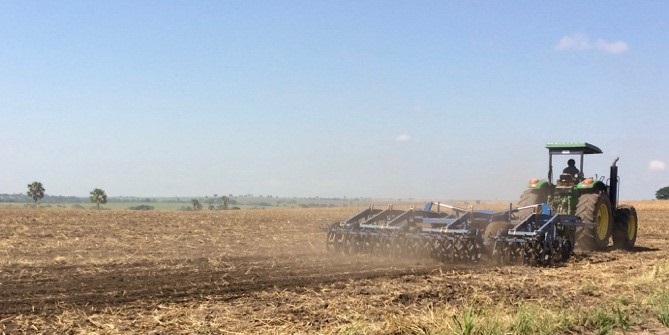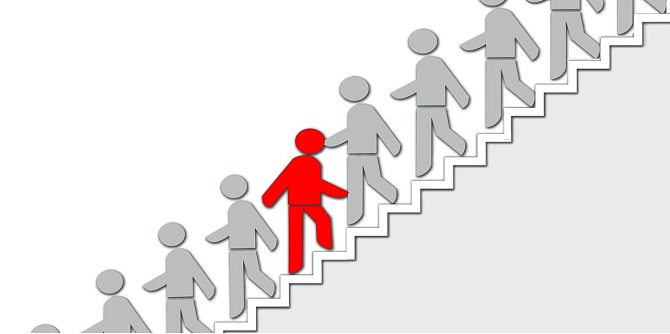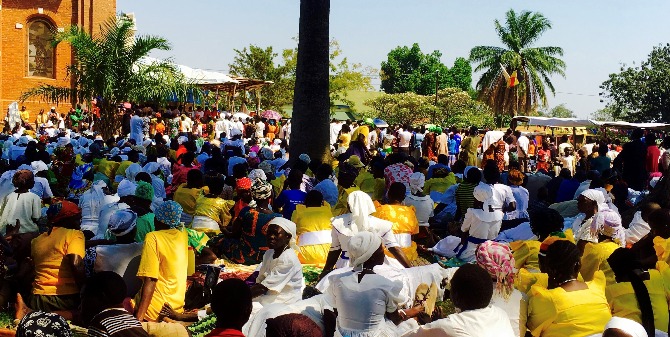Welcome to our 2023 review of the Africa@LSE blog. In this article, we will look back at the major events from the past year and showcase the analysis that was published by our host of excellent contributors.
Ethiopia
It’s been a tumultuous year in Ethiopia. Towards the end of 2022, we covered the Pretoria Agreement between the government and the TPLF. An uneasy truce in Tigray has held, but the federation continues to face struggles
The agreement that ended the war in Tigray has kick-started another dispute between the government and their former allies, the Fano.
https://blogs.lse.ac.uk/africaatlse/2023/11/23/a-conflict-between-the-amhara-fano-and-the-government-is-the-latest-challenge-to-ethiopia/
The state of permacrisis has led some of our authors to examine the state of Ethiopian federalism. Namhla Thando Matshanda argues that federalism has fuelled tensions about clan histories
https://blogs.lse.ac.uk/africaatlse/2023/06/28/ethiopian-federalism-has-fuelled-tensions-about-clan-histories/
Yohannes Woldemariam wrote about how Amharic hegemony is damaging social cohesion. https://blogs.lse.ac.uk/africaatlse/2023/07/07/amharic-hegemony-is-damaging-social-cohesion-in-ethiopia/
FLIA Research Fellow, Mebratu Kelecha looked at how Ethiopia’s past has shaped its present debate between central power and regional autonomy.
https://blogs.lse.ac.uk/africaatlse/2023/04/28/how-ethiopias-past-has-shaped-its-present/
And Birhanu Bitew looked specifically at how Italian narratives during its failed invasion helped to lay the seeds of genocide.
https://blogs.lse.ac.uk/africaatlse/2023/02/27/italian-narratives-about-the-amhara-helped-lay-the-seeds-of-genocide-in-ethiopia/
Climate change
This time last year “Africa’s COP” was coming to an end in Sharm El Sheikh, Egypt. Climate change has been one of the dominant subjects on the blog this year. Africa has the lowest emissions of any region in the world but will be one of the most heavily affected by climate change. The subjects we’ve touched on speak to this challenge while acknowledging that Africa’s energy demands will rise as it pursues economic growth.
One of the big challenges is how to fund mitigation and adaptation programmes across Africa. Visiting Senior Fellow at FLIA, Desné Masie wrote about the call from African leaders for a global carbon tax and looked at the possibility of it ever happening.
https://blogs.lse.ac.uk/africaatlse/2023/10/26/african-leaders-have-called-for-a-global-carbon-tax-will-it-ever-happen/
As part of the LSE Festival earlier this year, FLIA hosted an event on carbon markets. One of our guest panellists, Annet Nakyeyune wrote for us about how carbon credits, even though they are well-meaning, are distorting local markets, and damaging local businesses. https://blogs.lse.ac.uk/africaatlse/2023/06/12/carbon-credits-are-distorting-markets-and-destroying-local-businesses/
However the money is raised, it is clear there is a lot of work to be done. Visiting Fellow, Uche Igwe has written about how corruption could be holding back the energy transition in Nigeria.
https://blogs.lse.ac.uk/africaatlse/2023/05/19/fighting-corruption-matters-for-the-energy-transition/
On the subject of the energy transition, China has become a key player in Africa’s renewable revolution.
https://blogs.lse.ac.uk/africaatlse/2023/08/30/china-has-quietly-joined-africas-renewable-energy-revolution/
COP28 has agreed the world needs to transition away from fossil fuels, but as Eyo Eyo wrote, international divestment from Nigerian oil has actually led to more local environmental damage.
https://blogs.lse.ac.uk/africaatlse/2023/05/22/international-divesting-from-nigerian-oil-is-damaging-the-local-environment/
And, as Europe tightens its rules on carbon heavy imports there may be a heavy price for Africa to pay, according to Jamie MacLeod.
https://blogs.lse.ac.uk/africaatlse/2023/06/02/is-the-eus-carbon-border-adjustment-mechanism-fair-on-africa/
With many competing demands on legislators, activism will be vital to progress. Winnie Chiche, another guest at a FLIA event this year, has written for the blog about the diverse landscape of climate change activism in Africa.
https://blogs.lse.ac.uk/africaatlse/2023/12/01/the-diverse-landscape-of-african-climate-change-activism/
And Eyo Eyo wrote for us about the effect this activism is having globally.
https://blogs.lse.ac.uk/africaatlse/2023/04/19/african-youth-can-lead-climate-action-from-the-frontlines/
Coup belt
Unfortunately, this year has seen violence across the Sahel. Coups in Niger and Gabon the war in Sudan led to the region being called a “coup belt”.
Francis Okpaleke argued the coup in Gabon was the latest event in a Francophone Spring gripping Africa. https://blogs.lse.ac.uk/africaatlse/2023/09/12/the-coup-in-gabon-is-the-latest-act-in-a-francophone-spring-gripping-africa/ and was sceptical that Niger would be the last coupe in the Sahel. https://blogs.lse.ac.uk/africaatlse/2023/08/17/niger-is-the-latest-coup-in-the-sahel-but-it-wont-be-the-last/
Tope Shola Akinyetun investigated how the socio-economic conditions around Lake Chad are fuelling instability.
https://blogs.lse.ac.uk/africaatlse/2023/03/23/insecurity-around-lake-chad-is-fuelled-by-the-exclusion-and-grievances-of-its-youth/
And Idris Mohammed wrote about how the coup in Niger was reshaping its relationship with its neighbour, Nigeria.
https://blogs.lse.ac.uk/africaatlse/2023/09/20/the-coup-is-reshaping-the-relationship-between-niger-and-nigeria/
The first crisis kicked off in Sudan.
Yohannes Woldemariam wrote at the time that the crisis had been simmering for a long time. https://blogs.lse.ac.uk/africaatlse/2023/05/05/the-sudan-crisis-has-been-simmering-for-a-long-time/
Christopher Zambakari examined the historical context of the conflict and what the international community could do to help end the conflict. https://blogs.lse.ac.uk/africaatlse/2023/05/31/the-conflict-in-sudan-is-a-complex-situation-crying-out-for-solutions/ and looked at the lessons from the history of peacemaking in Sudan. https://blogs.lse.ac.uk/africaatlse/2023/06/29/what-lessons-can-be-learnt-from-the-history-of-peacemaking-in-sudan/
Omar McDoom said that to break the cycle of violence Sudan needs to end its kleptocracy. https://blogs.lse.ac.uk/africaatlse/2023/05/17/sudan-to-break-the-cycle-of-violence-end-the-kleptocracy/
Finally, Harry Cross did a deep dive into Sudanese history to look at how the 1958 cotton crisis led to military rule in Sudan.
https://blogs.lse.ac.uk/africaatlse/2023/01/30/how-the-1958-cotton-crisis-led-to-military-rule-in-sudan/
Nigeria
In February, Nigeria held its presidential election. The winner was Bola Tinubu, but arguably the story of the campaign was the rise of third-party candidate Peter Obi.
Augustine B. Aboh and Obasesam Okoi looked at how Obi’s campaign could change Nigerian politics.
https://blogs.lse.ac.uk/africaatlse/2023/02/23/the-obidient-movement-will-shape-nigerian-politics-beyond-the-2023-presidential-election/
Apart from new political rivals, Tinubu faces a host of domestic challenges. Dengiyefa Angalapu looked at the task of national integration.
https://blogs.lse.ac.uk/africaatlse/2023/06/30/nigerias-new-president-faces-the-task-of-national-integration/
Tochukwu J. Emegwa examined the state of Nigerian democracy. https://blogs.lse.ac.uk/africaatlse/2023/06/07/nigeria-democracy-without-development/
And Uzochukwu Alutu reckons there are two things Nigeria lacks: trust and taxes. https://blogs.lse.ac.uk/africaatlse/2023/02/24/nigeria-is-running-low-on-trust-and-taxes/
Ubuntu
In autumn this year we published the first three articles in our ongoing series on Ubuntu.
Kevin Behrens wrote about how Ubuntu’s focus on shame and reintegration could help reinvigorate global climate change negotiations.
https://blogs.lse.ac.uk/africaatlse/2023/11/15/ubuntus-focus-on-shame-and-reintegration-could-help-solve-climate-change/
Moeketsi Letseka looked at how Ubuntu can help us reframe the tragic events in the world and place people’s humanness at the heart of our response. https://blogs.lse.ac.uk/africaatlse/2023/11/15/how-would-ubuntu-respond-to-the-crises-in-the-world-today/
Finally, Muxe Nkondo looked at the ambiguity of people being good sometimes but at other times being happy about other’s unhappiness.
https://blogs.lse.ac.uk/africaatlse/2023/11/15/the-existence-of-ubuntu-and-evil-is-a-challenge-to-us-all/
Thank you to all our readers and contributors this year. If you would like to write for the blog next year you can find more information about how to do so here.






Great review Mark!